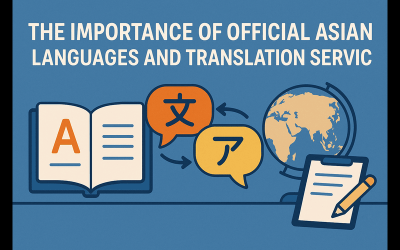Japanese is one of the most spoken languages in the world and is interesting due to its unique culture. Japanese correspondence allows one not only to learn a new communication skill but also to understand Japanese culture and history. Learning Japanese means taking a remarkably interesting and challenging step in the process of obtaining a new language. First of all, learn the two basic Japanese alphabets: Hiragana and Katakana. Mastering these will lay a solid foundation for your reading and writing skills in Japanese.
Resources to Practice the Language and Japanese Translation
There are also many resources on Japanese translation services and to practice the language. Most have been helped through online courses, Japanese books, and language exchange programs to boost language practice. This further extends to watching Japanese movies and TV shows, which aids listening skills.
Professional Translation Services
Get your documents translated and certified by a professional translator in 120+ languages with 24 hour delivery.
Get a QuoteJapanese Vocabulary and Daily Conversations
Learning Japanese common phrases and expressions used in daily life is very essential to mastering the language. Simple expressions to greet, thank, and apologize help use them in everyday conversations. You could do a run-through of these words and meanings by repetition.
Japanese Grammar Rules
Japanese is an agglutinative language, meaning that the addition of affixes to roots changes the meanings of words. This feature may give the impression that Japanese grammar is overly complicated. Still, it turns out that once the basic rules are learned, the language is not so difficult to study. The sentence structure of Japanese is in the sequence: subject + object + verb. Mastering grammar rules on verb conjugations, sentence structures, and particles is essential to enhancing your Japanese language skills. Japanese grammar books and online resources can help in this aspect.
Japanese Writing System: Kanji Learning Techniques
Characters in a Japanese writing system, particularly Kanji, represent words and their meanings. You can learn Kanji through flashcards, drawing applications, and repetition techniques. If practiced regularly, you would feel memorizing Kanji characters a lot easier.
Language Classes and Online Education for Learning Japanese
Japanese language classes may be held within a classroom or online. Online Japanese classes offer flexibility and accessibility. You will get to learn through video lessons, interactive exercises, and opportunities to practice the language on virtual platforms.
Taking private Japanese lessons will tremendously boost your pace with personalized instruction. With one-on-one lessons, teachers offer an opportunity to delve into the intricacies of the language and go deep into practice. Private lessons will tailor your abilities to fit your personal needs.
Is Japanese a Difficult Language?
Though more challenging compared to other languages, Japanese does come with its share of problems. First of all, learning is difficult because of the structure of Kanji characters and grammatical different alphabets. However, you can work out all these difficulties provided that you study regularly, are patient, and use the right resources.
It is equally important to stay motivated while learning Japanese. Setting short-term goals and working over them, noticing progress, and enjoying the process of language practice can help in increasing motivation. Moreover, if one has a passion for Japanese culture and language it will make the process easier to go through.
What is the Place of Japanese Correspondence in Corporate Communication?
Japanese is one of the significant languages spoken by millions of people and the official language of Japan. Japan is one of the world’s leading exporters in sectors such as technology and automobiles. For that matter, working with such a country provides particularly good business opportunities for companies. Japanese correspondence for corporate communication is, therefore, especially important to companies dealing with Japan. What is more, writing a letter in Japanese culture means showing regard and giving respect. Therefore, Japanese correspondence helps to develop business relationships, break cultural gaps, and solidify relationships between businesses. Proper wording and form in Japanese correspondence make a good impression on your clients or business partners. It also makes sure that contracts and agreements are interpreted correctly and accordingly properly applied. The professional translation office can support this process. Other than the correspondence, sworn translation may also be necessary for legal documents such as contracts.
Japanese Correspondence benefits
Confidence Building and Respect: Japanese correspondence builds trust and respect in Japanese business etiquette.
Clarity and Accuracy: Correspondence in the native language makes sure that agreements and communication are rightly understood.
Professionalism: Japanese correspondence is necessary for creating a professional image and leaving a good impression on business partners.
Certified Translation ServicesGet your documents translated and certified by a professional translator in 120+ languages with 24 hour delivery. Get a Quote |
What kind of Language and Format Rules Take part in Japanese Correspondence?
Honor and Hierarchy: Use of honorific language that will address the person with the proper title and position in the hierarchy.
Polite and Formal Language: Japanese correspondence requires polite and formal language.
Complete and Clear Expression: It should be clearly and understandably expressed for any avoidance of confusion.
Considering the huge role Japanese correspondence plays in corporate communication, seeking professional support concerning it and proper language use will lead to better success in business relationships.
 Rana Maalouf
Rana Maalouf

